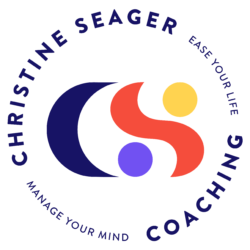Stop Fixing What Isn’t Broken
How many times have you thought, This time it’ll be different?
You bought the fancy planner. You started that new workout routine. You even downloaded the latest app everyone’s talking about.
But here you are, weeks (or days) later, feeling like you’re right back where you started.
Sound familiar?
Here’s the thing: Your brain is wired to crave novelty.
Neuroscience tells us that when you try something new, your brain lights up with a fresh hit of dopamine. It feels good in the moment. But novelty doesn’t equal better—and it doesn’t mean it’s solving your actual problem.
So why do we keep chasing it?
Examples:
- Calendars and Planners
How many planners have you abandoned mid-year? Or mid-week? You start with one, then grab another because, let’s be honest, you’re convinced this one will finally make you organized.
Spoiler alert: It’s not the planner.
- Workouts
You finally found a workout routine you like—or at least one that doesn’t make you miserable. But then you see someone on Instagram doing burpees on a Bosu ball, and suddenly you think, Should I be doing that?
Here’s an idea: Stick with what you’re already doing. Because the thing that works is the thing you’ll actually do.
The Real Question: Why Are You Switching?
Next time, before you jump to something new, stop and ask yourself:
- What’s actually working for me right now?
- Why do I feel the need to change?
- Am I chasing the excitement of starting over?
- Or am I avoiding something uncomfortable?
Spoiler alert: It’s usually the uncomfortable part.
Here’s the truth: The magic isn’t in finding something new. The magic is in staying consistent with what already works, even when it feels boring or hard.
When you stop chasing shiny new solutions and stick with what already works, a few amazing things happen:
- You save yourself a ton of time (no more Googling “best planners for 2025”).
- You actually get results because you’re consistent.
- You feel more in control—because you’re no longer scrambling for answers.
And here’s the best part: You start to trust yourself again.
That’s what I help my clients with—figuring out what’s actually working, why they keep chasing new things, and how to make progress without reinventing the wheel every week.
You can save yourself time, energy, and frustration—and coaching with me can help you get there faster.
Are you ready to stop spinning your wheels and start building momentum?
Book a complimentary consultation with me today. We’ll talk about where you’re stuck, what’s already working, and how coaching can help you finally move forward.
Or, join me for my LAST free masterclass of 2024, How to Abstain, on 12/11/24 at 11 am via Zoom. It’s all about cutting through clutter and creating a life that works for you.
Let’s get you results. You don’t have to do this alone.
As part of the benefits offered at Logan Health, employees get free coaching sessions.
Or, if you are not a Logan Health Employee, you can book a consultation to learn how to work with me.
The LAST Free Monthly Masterclass for 2024 is on December 11, How to Abstain from over eating, over drinking, over scrolling, etc. Registration is required and you can do so here:
P.P.S. Liked what you read? Join my email list, where I dive deeper into these concepts and teach you HOW to put them into practice in your everyday life.

